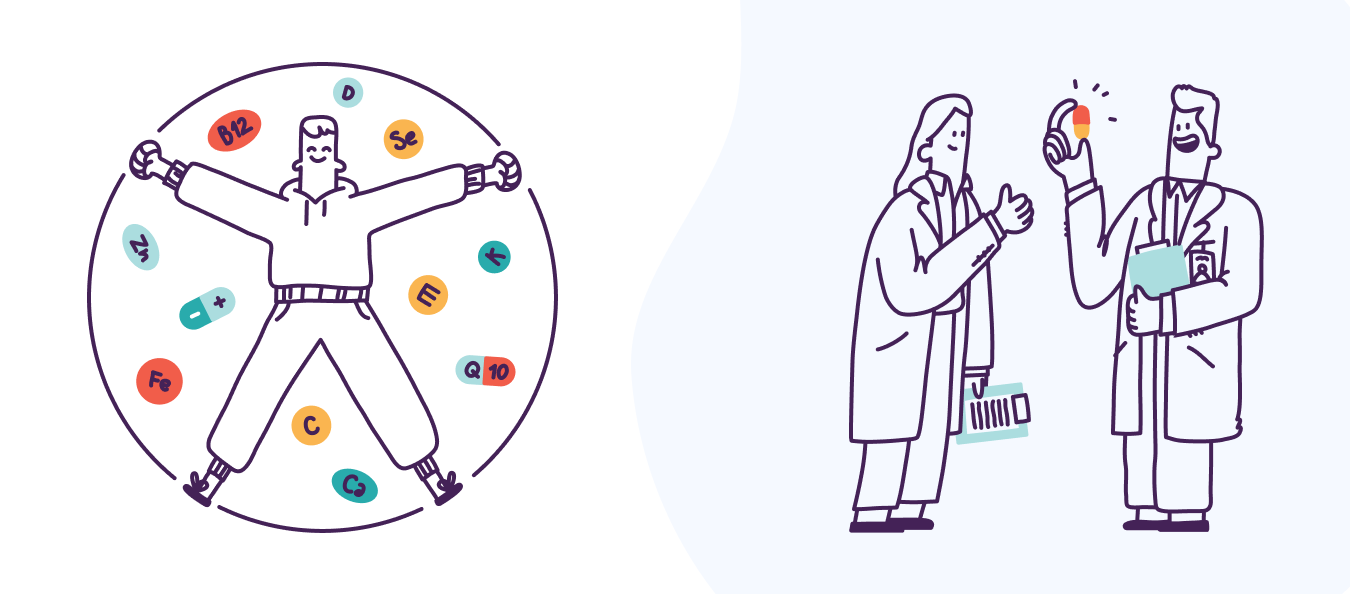I learned about my mutated gene when I was 25—a susceptibility protein that puts me at major risk of developing cancer before the age of 40. It can be quite terrifying to live with the knowledge that there is a ticking time bomb hiding within the fiber of your being. However—and this might not be the case for everyone—I’d rather understand and face my risk than be in the dark. Personalized medicine affords me that opportunity.
My own personal experience set my interest in personalized medicine in motion. For others who aren’t so familiar, they may be surprised to know how personalized medicine (also known as precision medicine, or individualized medicine) may intersect with their own lives, either now or in the future.
Personalized medicine is a term that encompasses the practice of using individuals’ unique physiological characteristics to prevent and treat disease. These medical interventions and assessments are tailored to a patient’s specific biology. Current consumers have access to technologies, products, and services that utilize their unique genome to tailor the medical interventions that would work best for them. The world of personalized medicine is vast, and this article will briefly introduce four different categories: wireless monitoring devices, direct-to-consumer services, pharmacogenomics, and software solutions.

Requiring FDA approval, wireless monitoring devices are an important element of personalized medicine. These devices run the gamut from FitBits (now cleared to monitor for signs of atrial fibrillation), BlueToothbluetooth scales that share weight changes with physicians, to clinical-grade wearables that provide personalized predictive care and continuously monitor various physiological parameters. Continuous monitoring devices can be a cost-effective way to reduce adverse health events, such as pressure ulcers, falls, or rehospitalizations.
Perhaps the most well-known and accessible personalized medicine products are the direct-to-consumer (DTC) services. These are usually available without a prescription and require users to collect their own bio-fluids to send in. There are numerous services available today, with some higher-stakes tests receiving oversight from the FDA. There are multiple companies that acquaint individuals with details about the bacteria that exist within their bodies (there’s even a service for pets); carrier screening products for prospective parents that test for genetic variants; and genetic health risk screenings for diseases such as Alzheimer’sAlzheimersAlzaheimers or Celiac.
More likely to require physician approval for use, pharmacogenomics is the next step up in personalized medicine. There’s a wide variance in how people process and metabolize substances. I can’t process most dairy products without getting a stomach ache. Some of my friends turn bright red after imbibing in only a small sip of an alcoholic beverage. It is evident that different people metabolize prescription drugs in different ways as well. Pharmacogenomics is the study of how an individual’s genes affect their response to pharmaceuticals. As a result, cancer patients can receive the chemotherapy drug and dosage best suited to their genetic disposition. Patients can even receive personalized cancer vaccines using cells from their own bodies that are then modified and injected back in. People with depression and other mental health illnesses can reduce the time spent trialing psychotropic drugs to find a safe and effective solution at the right dosage. Even pain management can be tailored to an individual. There are numerous entities taking on these services, many of them providing services that are reimbursable by insurance. Even 23andMe now offers some pharmacogenomic tests for users who pay a yearly fee for 23andMe+ services.
Bringing all of these services together requires integrated software solutions. For people and process management on both local and global scales, Vineti offers a platform for data management and collaboration to streamline the therapeutic workflow for cancer treatment therapies by connecting traditionally disparate stakeholders. Specializing in personalized therapies, their cloud-based Personalized Therapy Management (PTM) platform helps to ensure compliance with regulatory standards, as well as simplifying and integrating both clinical and supply change management systems.
For me and countless others, the expansion and diffusion of personalized medicine into mainstream healthcare signals better future health outcomes. Research shows that innovative and cost-effective measures are often slow to be adopted by insurers and providers. However, Covid-19 has illustrated how quickly science can work to develop solutions to disease and suffering. As a society, we are trying to move away from a one-size-fits-all approach to healthcare (e.g., President Obama’s Precision Medicine Initiative), and I for one hope that the momentum continues.